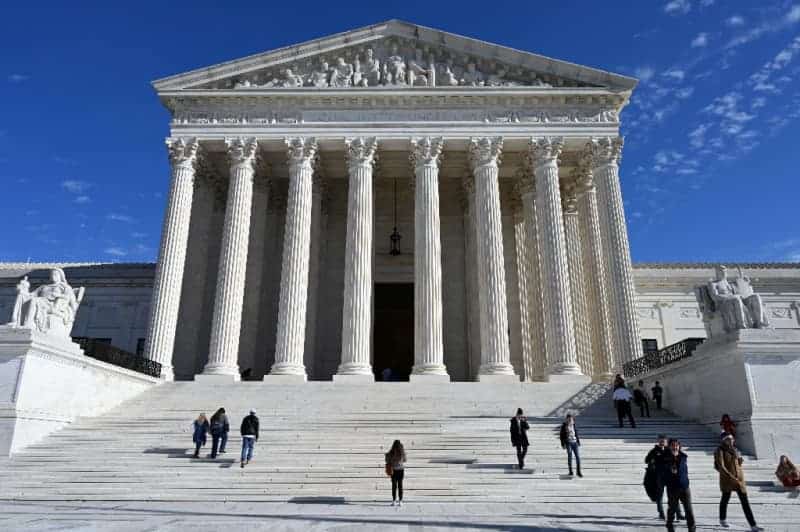AFP

Washington (AFP) – The US Supreme Court on Wednesday appeared poised to accept that public funds can be used to support families sending their children to religious schools, challenging longstanding principles of separation of church and state.
Two evangelical Christian families in the northeastern state of Maine sued to be able to use state-provided education subsidy funds to send their kids to schools with religion as the basis of their teachings.
As Maine is sparsely populated, more than half of its school districts have no publicly funded high schools. So families receive subsidies that allow them to send their children to schools of their choice, including privately-run schools.
But schools where religious beliefs are at the core of instruction are not covered in the aid program, because, under the regulations for the program — and those similar in other states — the teaching is “sectarian.”
One of the families wanted to send their children to a school that was disqualified because, local authorities argued, it “teaches children that the husband is the leader of the household” and encourages kids to recognize “God as Creator of the world.”
The school chosen by the second family in the case makes use of the Bible in all academic subjects.
And both schools do not accept LGBTQ students or employees.
The parents who sued — with the backing of Republican senators, 20-odd conservative-led states and many religious institutions — insist on that the constitution’s First Amendment freedom of religion clause gives them the right to choose a school that reflects their values.
If they are denied the subsidies, they argue, they are suffering discrimination because of their religious views.
The state of Maine argues that under the constitution government money cannot be used to support religious schools that discriminate, for example, against LGBTQ students.
The administration of President Joe Biden, Democratic-run states and teachers and human rights associations have backed Maine in this fight.
With six of the court’s nine justices in the conservative camp, several appeared sympathetic to the families’ arguments that the state must include the parents’ preferred religious schools in the funding program.
When a government official decides which schools can benefit from subsidies and which cannot, Justice Neil Gorsuch said, “How does that not discriminate against minority religious viewpoints? Or ones that are unorthodox?”
The three progressive justices warned that ruling against Maine would spark conflicts.
“These schools are overtly discriminatory, they’re proudly discriminatory,” said Elena Kagan.
“Other people won’t understand why in the world their taxpayer dollars are going to discriminatory schools.”
The case is a part of a much wider and very hot debate in the United States on the role of parents and school choice in education, and how tax funds dedicated to schools are allocated.
Issues of Covid-19 policies, acceptance of transgender students, and teaching about African-American history have deepened divides in communities and encouraged some to look to private and religious schools for their children.
The Supreme Court is expected to decide the case by June 2022.



